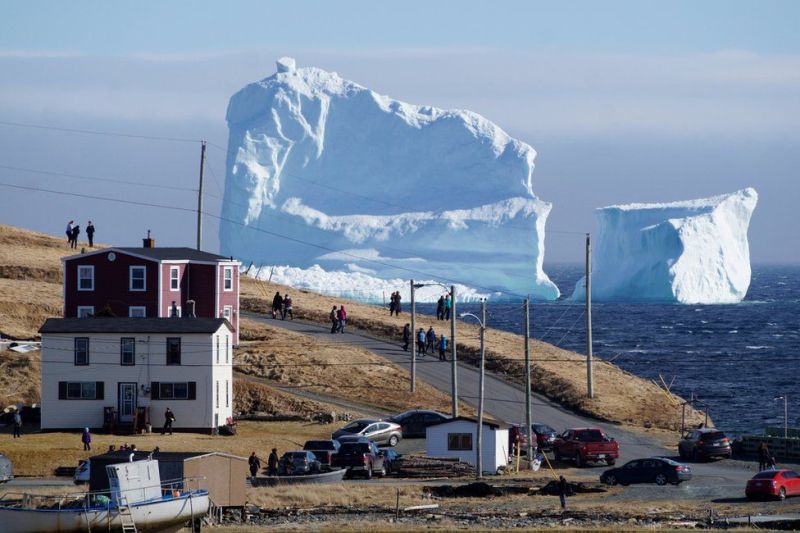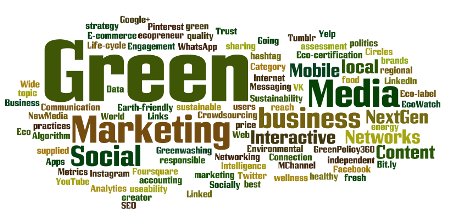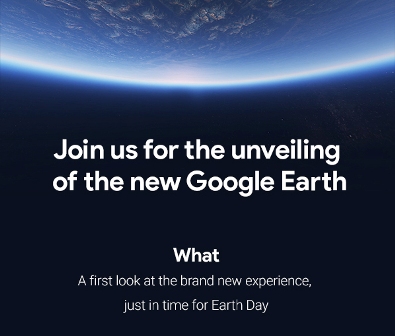Ecotourism: Difference between revisions
Siterunner (talk | contribs) No edit summary |
Siterunner (talk | contribs) No edit summary |
||
| Line 112: | Line 112: | ||
[[File:Google Earth invite-just in time for Earth Day.jpg]] | |||
[[File:Google Earth banner.png]] | |||
[[File:Google Earth | |||
<big><big>'''Earth Mapping Developments & Updates'''</big></big> | |||
'''One of GreenPolicy360's favorite [http://www.planetcitizens.org "planet citizens"], [http://www.greenpolicy360.net/w/File:Rebecca_Google_Outreach.jpg Rebecca Moore of Google Earth / Earth Outreach]''' | |||
<small>''“The story of your family history, the story of your favorite hiking trip – it could be anything. It doesn’t have to be profound,” Google Earth Director Rebecca Moore.''</small> | |||
* https://thenextweb.com/google/2017/07/13/google-earth-will-soon-let-anyone-share-stories-and-photos-on-virtual-globe/ | |||
''Google Earth is opening up this functionality... teaming up with primatologist Jane Goodall to tell stories of the [https://en.wikipedia.org/wiki/Yanomami Yanomami people][https://en.wikipedia.org/wiki/Cinta_Larga Cinta Larga] and the [https://pt.wikiversity.org/wiki/Wikinativa/Boa_Vista_do_It%C3%A1 Boa Vista Quilombola]. Utilizing maps for story-telling is just the beginning of the story, of how we can begin to see our world/planet, and the journeys and changes we make, over time. Our new virtual tools are just beginning to come into view...'' | |||
~ | |||
| Line 132: | Line 149: | ||
[[Category:Forests]] | [[Category:Forests]] | ||
[[Category:GreenPolicy360]] | [[Category:GreenPolicy360]] | ||
[[Category:Maps]] | |||
[[Category:Natural Capital]] | [[Category:Natural Capital]] | ||
[[Category:Natural Resources]] | [[Category:Natural Resources]] | ||
Revision as of 16:35, 18 January 2020
https://upload.wikimedia.org/wikipedia/commons/8/85/Isla_del_Coco-chatham_beach.jpg
Consider traveling to 'Environmentally-friendly' countries for your next vacation or adventure
Among the many definitions of "ecotourism / eco-tourism" are the more 'strict' definitions (see Wikipedia definition below) and more 'loosely labeled' definitions of what constitutes ecologically aware tourism. Ecotouring now includes ocean cruises in the Arctic and Antarctic to witness climate change, group adventure expeditions to remote fast-changing regions, and individually planned trips north and south to the mountains and coasts to see recent environmental changes (see above example in Newfoundland, Canada).
In the near future, 'virtual ecotourism' will enter the lexicon, as virtual reality capabilities added to programs like Google Earth enable 3D / immersive touring via headsets and data libraries gathered from locations as diverse as the biospheres within rainforest canopies, ocean kelp forests and seascapes of seagrass, 'tiny blue-green' environments producing essential oxygen for the planet, to astronaut perspectives who speak of an "Overview Effect" as they take in the overwhelming cognitive experience of floating above the Earth.
○
According to the definition and principles of ecotourism established by The International Ecotourism Society (TIES) in 1990, ecotourism is "Responsible travel to natural areas that conserves the environment and improves the well-being of local people." (TIES, 1990). Martha Honey, expands on the TIES definition by describing the seven characteristics of ecotourism, which are:
- Involves travel to natural destinations
- Minimizes impact
- Builds environmental awareness
- Provides direct financial benefits for conservation
- Provides financial benefits and empowerment for local people
- Respects local culture
- Supports human rights and democratic movements such as:
- conservation of biological diversity and cultural diversity through ecosystem protection
- promotion of sustainable use of biodiversity, by providing jobs to local populations
- sharing of all socio-economic benefits with local communities and indigenous peoples by having their informed consent and participation in the management of *ecotourism enterprises
- tourism to unspoiled natural resources, with minimal impact on the environment being a primary concern.
- minimization of tourism's own environmental impact
- affordability and lack of waste in the form of luxury
- local culture, flora and fauna being the main attractions
- local people benefit from this form of tourism economically
○ ○ ○ ○ ○ ○ ○ ○ ○ ○ ○ ○ ○ ○ ○ ○ ○ ○ ○ ○ ○ ○ ○ ○
SJS: The Costa Rica rainforest canopy web project of Don Perry beginning in the 1980's was one of the first planned ecotourism projects.
One of the key goals was to open up to 'the world' a direct experience of the rainforest canopy, which previously was inaccessible in its unrivaled biodiversity and beauty.
In this way we believed visitors' awareness would more fully carry on with them in their home communities and policies and funding would begin to preserve the unique and critically important flora and fauna comprising one of the richest biospheres on Earth.
○
- | Earth Observations http://www.greenpolicy360.net/w/Category:Earth_Observations
- | Earth Science from Space http://www.greenpolicy360.net/w/Earth_Science_Research_from_Space
- | Earth Mapping-GIS http://www.greenpolicy360.net/w/Virtual_Earth
- | Blue Marble Collection http://www.greenpolicy360.net/w/Blue_Marble_Collection
- | "Earthrise" http://www.greenpolicy360.net/w/File:Apollo.jpg
- | Overview Effect http://www.greenpolicy360.net/w/Overview_Effect
- | EarthPOV.com http://www.earthpov.com
- | Hello Earth http://www.greenpolicy360.net/w/HelloEarth
- | "Pale Blue Dot" http://www.greenpolicy360.net/w/Pale_blue_dot
- | Earth360 http://www.greenpolicy360.net/w/@Earth360
- | Whole Earth http://www.greenpolicy360.net/w/Whole_Earth
Earth Mapping Developments & Updates
One of GreenPolicy360's favorite "planet citizens", Rebecca Moore of Google Earth / Earth Outreach
“The story of your family history, the story of your favorite hiking trip – it could be anything. It doesn’t have to be profound,” Google Earth Director Rebecca Moore.
Google Earth is opening up this functionality... teaming up with primatologist Jane Goodall to tell stories of the Yanomami peopleCinta Larga and the Boa Vista Quilombola. Utilizing maps for story-telling is just the beginning of the story, of how we can begin to see our world/planet, and the journeys and changes we make, over time. Our new virtual tools are just beginning to come into view...
~



